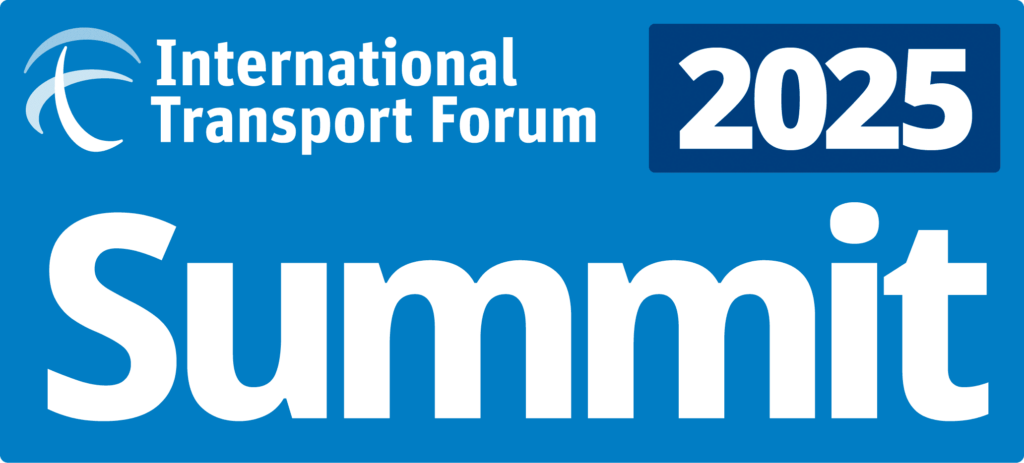Transport System Resilience, Connectivity and Diversification in the Face of Climate Change and Other Global Shocks
Event Details
Organisers: Ministry of Land, Infrastructure, Transport and Tourism of Japan, Life-Links, Kuehne Climate Center, IRF, Oris Materials Intelligence, Asian Transport Observatory International logistics have been disrupted by global shocks such as
Event Details
Organisers: Ministry of Land, Infrastructure, Transport and Tourism of Japan, Life-Links, Kuehne Climate Center, IRF, Oris Materials Intelligence, Asian Transport Observatory
International logistics have been disrupted by global shocks such as pandemics, conflicts, cyberattacks, disasters and climate change. Improving resilience and connectivity of transport networks involves strengthening existing routes and diversification through alternative and new routes.
Building resilience is complex because measures must deal with different threats, cover different disruption phases (preparation, response, recovery/adaptation), and consider not only the physical transport infrastructure but also its operations; supporting infrastructure (e.g. IT, communication, energy); economic, social, environmental aspects; and policy and planning. Furthermore, decarbonisation must be integrated with climate resilience and adaptation.
Cooperation between actors from the public, private and development sectors, Global South and North, and the involvement of local communities and their workers is key to success. The good news is that there are ample guidelines and AI-supported tools to assess risks and identify measures that improve resilience, connectivity and diversification of transport networks, often combined with GHG mitigation and nature-based solutions.
This session starts with a first panel discussion on diversifying freight transportation routes between Europe and Northeast Asia through Central and Southeast Asia. The panel will raise challenges faced by companies – such as transportation costs, lead times, transportation quality, and transportation procedures – and discuss how to address these challenges.
The second half of the session will see the launch of ‘Logistics in a 2 degrees world’, followed by a second panel on improving resilience of existing supply chains and corridors and how KPIs can support policy, investment and collaboration and empower local communities and (informal) transport providers. Practical examples will be presented with a particular focus on land networks, climate change, and the Global South for Africa, Asia, and Latin America.
The event builds on the Transport i-Lab at COP29, IMO and WEF Davos, and results will be taken forward to COP30 Brazil.
MODERATOR PANEL 1
- Emiko Araki, Director, International Cooperation Office, International Policy Division, Ministry of Land, Infrastructure, Transport and Tourism
PANELLISTS PANEL 1
- Sakiko Hirokane, Director for International Logistics Negotiations, International Logistics Office, Logistics and Road Transportation
- Yaroslav Kholodov, Policy Analyst / Manager of Central Asia Connectivity Study, ITF
- Miyoung Kim, General Manager, Global Parts Business Strategy Department, Toyota Tsusho Corporation
- Kazuhito Yoda, Deputy Regional Director, European Headquarters, Nissin Corporation
- Aleksandra Suladze, Deputy Head of Transport and Logistics Development Policy Department, Ministry of Economy and Sustainable Development of Georgia
MODERATOR PANEL 2
- Sophie Punte, CEO, Life-Links
SPEAKERS PANEL 2
- Gonzalo Alcaraz, Acting Director General, International Road Federation
- Mark Major, Advisor Climate, Kuehne Climate Center
PANELLISTS PANEL 2
- Jamie Leather, Director Transport Sector Group, Asian Development Bank
- Nicolas Miravalls, CEO, Oris Materials Intelligence
- Susanna Zammataro, CEO, International Federation of Consulting Engineers (FIDIC)
- Andrea San Gil Léon, Executive Director, Global Network for Popular Transport
- Warwick Townsend, Sustainability & CSR Manager, Alstom
more
Time
May 21, 2025 11:00 am - 12:30 pm(GMT+02:00)
Location
CCL - Hall 5



